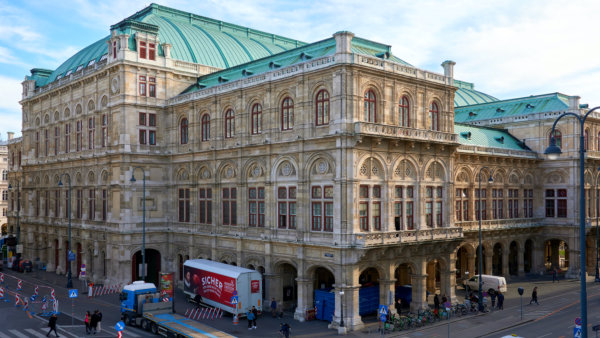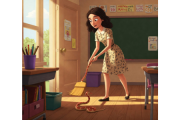“My name is Valentina, and I am your guide. I used to be a part-time palliative care nurse, working in a hospice. Now I do this full-time. I have three teenage children.” She smoothed her slim form with her hands as if emphasizing her shape. “Yes, I have.” She paused, seeking to discover the effect of this apparently irrelevant disclosure on the twenty or so elderly tourists eagerly awaiting the chance to be shown one of Vienna’s most popular tourist attractions. She grimaced in what she presumably took to be a beguiling smile, immune to the puzzled looks from several in her audience. She asked one of them how much he thought it had cost to rebuild the damaged building after World War II had ended. Before he could answer, she added, shaking her head, “In 1945, the Allies bombed this Opera House. I don’t know why.” This event was clearly a fact, but one without discernible value to her.
One among the group was Morris Levitt, an American historian for whom all facts had value. He could have told her why Vienna was bombed. Members of his own Viennese family had been murdered at Auschwitz. They had all lived in comfort on the Praterstrasse: his uncle Max, wife Ruby, and their five children, all the victims of Austria’s complicity in Hitler’s annexation of the country years before the devastating USAF bombing of March 12, 1945. Morris looked at his wife in bewilderment. “Who is this woman? Is she for real?” His wife Lydia was more understanding. “She means it was not a military target,” she whispered discreetly. Morris shook his head and muttered, “Collateral damage happens in times of war.” Lydia nodded. She herself had once been a contralto in Harrisburg, and had been keen to hear about last night’s performance of Mozart’s The Magic Flute, for which she had not been able to buy tickets. Perhaps Valentina could enlighten her. But Lydia’s yearning was doomed to disappointment.
Their guide said nothing about any performance there in the recent or distant past, nothing about any famous singer, composer, librettist, conductor, operatic company, opera or ballet; she clearly knew nothing about their plots or performance history, was ignorant of the annual Vienna Opera Ball and the free performances of operas beamed outside on giant telescreens from time to time in the summer, said nothing about the impressive costume department, about the building’s fabled history, or its yearly tally of 350 performances of up to 60 different operas and ballets. She did not take them behind the scenes, had no stories to tell of the world of the imagination conjured up every night in music and action on an elaborate stage representing a forest, a medieval castle, or a lovers’ tryst beside a riverbank. Instead, she recited a litany of unrelated statistical information, and regaled them with bizarre observations about how her own teenagers were bored by one performance she had taken them to, of which opera she did not say. Opera held no interest for her. She used exaggerated gestures to demonstrate that she might have had delusions of being an actress herself. “I am not going to give you the answer to my last question as we do not have time for discussion,” she told her mystified listeners. “I must now move to the Next Stage,” an odd comment, as she was never near any stage, literal or figurative. They descended a staircase. At its foot, she asked if there were any questions. There were none. The ‘Next’ Stage proved to be the Last. Her audience passed her by at the door with neither comment nor gesture as they filed out of the Opera House into the clear spring air, no doubt all aware that a great opportunity had been missed.
“What a disgrace!” fumed Morris to his wife as they boarded their bus. “We paid 20 euros for 20 minutes of rubbish! This was an insult. Who was this woman? Who hired her?”
Lydia sighed. Her thoughts were elsewhere. “I would have loved to have seen The Magic Flute again. I don’t expect we will ever be back.” She patted his hand. “But we have each other, and so many others don’t.”
The old couple held hands as they settled into their seats. They sat silently at the back as the bus pulled away from the Opera House and began to circle the Ringstrasse.
“So that’s that,” she said, glancing at the ferris wheel as they passed Prater Park, her husband beside her lost in his own sombre thoughts.





